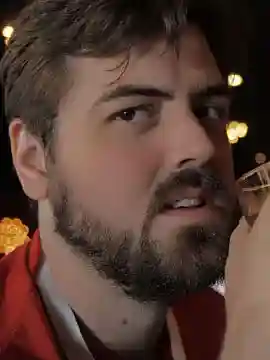This article's very existence is a testament to the argument that originality doesn't necessarily count for much.
True Detective, a show that garnered adoration from crowds and critics alike, wrapped its inaugural season earlier this year. Proving that those at the top are always targeted first, a barrage of think-pieces—much like this one—flooded the blogosphere. A few of them were hatchet-jobs: shameless click-bait designed to accrue hits and the associated advertising dollars by taking potshots at the latest media darling. Most of them, however, were fairly complimentary.
If you've read the piece on eReaders, Lena Dunham, or any other number of contrarian screeds I've uploaded here at LitReactor, you'll know that a great way to get my brain (and hackles) working is for a specious argument to become accepted as Internet-validated truth. Clearly, I have a problem, as the now ages-old XKCD comic can attest to, but I just can't help myself. As True Detective gears up for its sophomore season, with talk of Colin Farrell waiting in the wings, it seems appropriate to go on the record and say that the hype surrounding the show is overblown, but perhaps in both directions. As with the fervor surrounding another of HBO's much-talked about series, Girls, the bulk of critics I've seen crying foul are utilizing less than compelling arguments.
The loudest critical voice that arose in the wake of True Detective's success alleged that the show was sexist, or at least that it reinforced sexist attitudes. The more earnestly explored of these sorts of criticisms tended to address the problems of the police procedural as a genre, acknowledging that while True Detective's depiction of Louisiana State police officers might have simply been erring on the side of realism when it recounted the undeniable misogyny of Martin Harris, the writers' refusal to comment on or subvert this thematic mainstay of the genre amounted to a tacit endorsement.
The first argument has a little credibility, but not much. At the risk of sounding like a (shudder) "men's rights activist", the existence of yet another prime time show driven by male leads doesn't necessarily amount to a sexist enterprise, although one could make an argument that it's symptomatic of a larger, sexist disease that has convinced the globe's men (and women, to an extent), that male heroes are more "relatable". The second charge is more compelling, but if we're being fair, asking the creative staff behind True Detective to single-handedly turn around decades of culturally enforced gendering seems like something of an unreasonable expectation. As I mentioned in my previous critique of Dunham's Girls, the idea that all art must be all things to all people walks a dangerously narrow tightrope between inclusiveness and enforced sanitization, if not de facto censorship. Of course, the team behind True Detective gave this argument loads of ammunition with their abomination of an ending, but we'll get to that later.
A criticism that holds more water but is less visible (probably because it attaches no hashtagable social causes to its agenda) is one of pacing. Let me put all my cards on the table: I was excited about True Detective. It came highly recommended from more than one friend, I'm a big fan of McConaughey and Harrelson, and the whole "contemporary Southern Gothic" thing that the show was mired in. If I had to wait for Rogen's adaptation of my beloved Preacher, then True Detective certainly seemed like the next best thing. That being said, I was hooked by the first episode, and as the series progressed I found myself more and more fascinated by the slowly unraveling mystery as Rust and Marty inched closer and closer to the truth. However, somewhere around episode five (immediately after the series' cinematic high point), the entire thing seemed to fall apart.
WARNING: HERE THERE BE SPOILERS
The weakest link in True Detective's swiftly crumbling architecture became apparent as the series staggered and lurched toward its wheezing conclusion: the reveal that the entire bizarre conspiracy that kicked off the investigation in the first place, was a red herring (or at least it was treated with about as much thought as one by the writers). Remember the collusion between the Tuttles, the charter school system, and some horrific child sacrifices and sexual assaults? The reason this entire series got started, the means by which the narrative was complicated and the protagonists challenged? Apparently, all of that was just window-dressing. At least, that's what we've been led to believe.
True Detective's ending is massively disappointing for a number of reasons, but its steadfast refusal to clue its audience in to any details about the Tuttle conspiracy is probably the most maddening. It's painfully annoying to be slowly fed threads of what has been presented as a finely engineered cat's cradle of narrative complexity, only to then be unceremoniously dumped into a dusty bin of tangled twine at the show's conclusion, but the show's creators and proponents would have us believe that the real story of the show was Rust's eventual (and completely unearned, in the context of the narrative) philosophical turnaround. It's much more likely that True Detective's writing staff never anticipated the closed, anthology-concept or hadn't adequately prepared the skeletal framework of the narrative (or both), and clumsily cobbled it together when they realized they had four episodes to tie up approximately four million loose ends. I call it "Damon Lindelof Syndrome": a phenomenon that occurs whereby a writer hooks in legions of fans by throwing out a myriad of half-baked ideas, runs the string out with the promise or implied promise of an explosive conclusion, then refuses to acknowledge his or her inability to resolve the series in a satisfactory manner by claiming that a different route was the plan all along.
How else can one explain the series' sudden shift at around the halfway point into a sudden, desperate race to tie up the story we had been led to believe was the point of all this several weeks beforehand? This rush to the finish line included ludicrous moments, not the least of which was the entire progression of the case hinging on the detectives recognizing a fresh coat of house paint on a random photo and making the necessary mental connections. It's a matter of personal taste, but in my mind, there could be no other excuse for the suspiciously late shift towards the character progression of Rust, whose similarly out-of-left field philosophical conversion comes in literally the last few minutes of the final episode ("If you ask me, the light's winning"), and is completely unearned and incongruous with the rest of the series and his character arc up to that point. It's possible that the writing staff were responding to the notable fan-slobbering over Rust's disjointed and borderline nonsensical metaphysical ramblings, and decided that the runaway popularity of a more R-Rated Hot Topic-esque nihilism indicated an easy out for the problem of resolving the actual story and allowed the writers to pretend they had been writing about Rust and Marty's respective arcs all along.
If this was actually a sudden shift, as I suspect, it's a dishonest and suspect move on behalf of the writers. If it was the plan all along, it's a clinic in bad storytelling and the worst kind of Lindelof-esque shirking of narrative responsibility. As mentioned before, Marty's similarly disingenuous shift from down and out, carousing, piece of shit horndog to an apparently rehabilitated family man happens over the course of less than an episode and reinforces the idea that misogyny is excusable as long as the offender purses his lips and says he's very sorry in the end. Most offensive of all, though, was the notion that the audience's desire for more closure concerning the Tuttles and the grand mystery that had been laid at our feet was somehow satisfied simply with the apprehension of the Yellow King, a narrative scrap thrown to the audience in the hopes that all other (ignored) players in the narrative would be forgotten. For shame, HBO.
The chicken is already in the pot as far as the future of True Detective is concerned. The show is yet another critical and commercial success in the endlessly notched belt of HBO, and creator Nic Pizzolatto will be working for at least one more season, with details of the next entry in the anthology series leaking onto the web at an exponential rate. In the end, however one feels about the gloomy tirades of Rust Cohle comes down to a matter of personal taste, and the same could be said for comparisons between a Neo Southern Gothic police procedural and more exhausting, televised version of something resembling an NC-17-rated Dan Brown novel. I only know that I was promised one and got the other.

About the author
John is a copy editor and contributing writer at LitReactor, and also does work for TwitchFilm.com. He holds a film degree from the University of Texas at Austin, and is currently hard at work on several as-yet unnamed projects.







